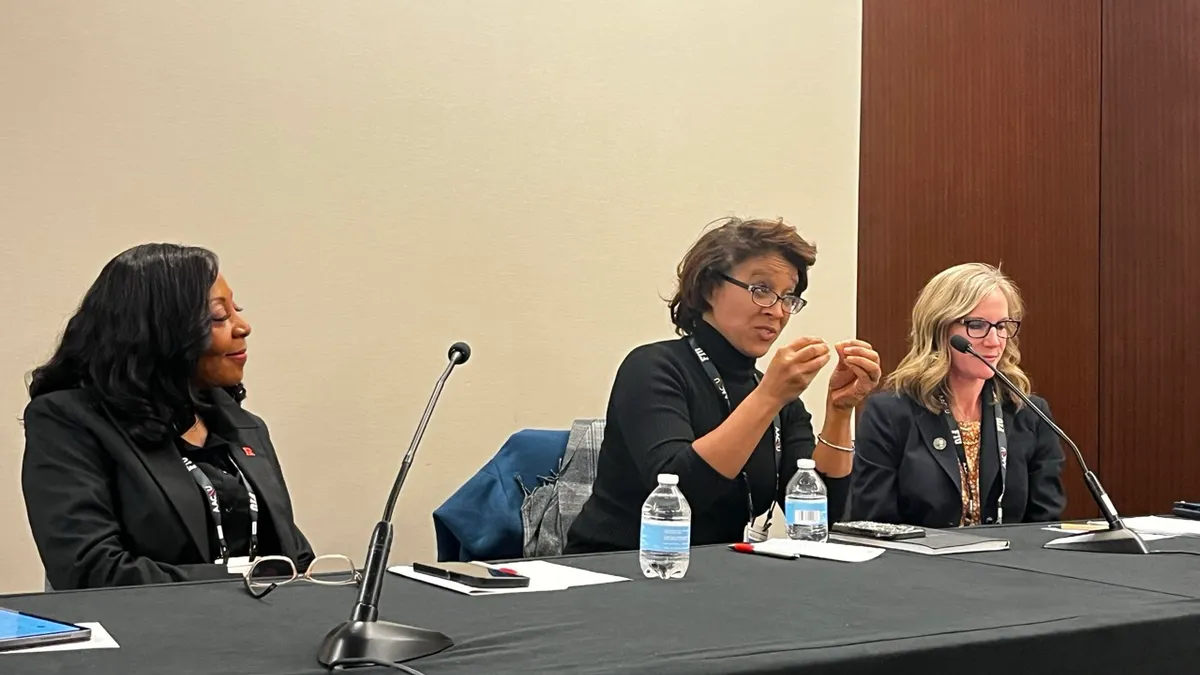Dive Brief:
- A new report from the Center for American Progress lays out the case for its proposed federal matching funding program to encourage states to invest in public higher education.
- The goal of the plan, called the Public College Quality Compact, would be to lower the price of college, ease the student loan debt burden, and make degrees more attainable for low- and middle-income students.
- The compact would require states to implement certain reforms to be eligible for the federal matching grants, including funding the cost of enrollment for low-income students pursuing a bachelor’s or associate’s degree at a public college.
Dive Insight:
One interesting point from the report: The states that have cut the most from their public college and university budgets since the Great Recession have seen the largest increases in federal student loan borrowing. Among the other hoops that states would have to jump through for matching funding, under the proposal: Provide at least as much as the maximum Pell Grant per student to their public higher ed institutions; set student and institution performance goals, such as improved graduation rate goals; standardize transfer-credit and admissions standards; and improve K-12 standards to better prepare students for college.













